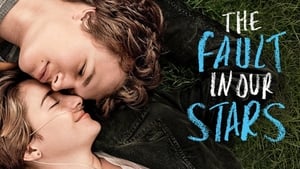Prior to the release of this year's arguably successful franchise origin, Divergent, many likened the career paths of Shailene Woodley and superstar Jennifer Lawrence. Almost indistinguishable from the result of Lawrence's breakthrough role in the dark indie drama Winter's Bone, Woodley burst onto the scene with a nominated Oscar performance in Alexander Payne's The Descendants. And much like the way Lawrence followed up a well-received introduction to the industry by locking down the lead in a blockbuster franchise, Woodley signed on for Divergent. But the similarities don't end there, both are versatile actresses with the ability to sway the audience into making a connection with their characters. This certainly holds true in Woodley's newest effort, The Fault in Our Stars.
Hazel Grace Lancaster (Woodley) is an understandably cynical teenage girl suffering from a form of cancer that makes it difficult for her lungs to function. With almost no chance of living a long and fruitful life, she clings to her favorite novel, "An Imperial Affliction", and socializes with almost no one outside of her loving parents. But everything changes the day she reluctantly goes to a support group and meets Augustus (Ansel Elgort), an exuberant and confident young man who fails to mask an immediate attraction when he literally bumps into Hazel for the first time. Together the star-crossed young lovers struggle to endure their illnesses and teach one another about the beauties of companionship.

Director Josh Boone's The Fault in Our Stars finds a reasonable comparison with the recent Best Picture Nominee, Extremely Loud and Incredibly Close. Not only are both titles a mouthful, but each of these delicate films use a difficult subject matter as a way to tell an enormously important story, even if it's both life-affirming and heartbreaking all at the same time. The Fault in Our Stars never wavers from the sentiment but amazing chemistry and towering performances from its pair of youthful leads, Shailene Woodley and Ansel Elgort, carry the audience through a passionate tale of living and dying. With Woodley, many of us would expect such a performance. However, Elgort proves to be the dark horse with an almost equally effective turn that brings balance and credibility to the feature. I remember when I first spotted Elgort in the less-than-memorable Carrie reboot and, even then, he made his presence known. The up-and-coming actor knows how to command a scene and I look forward to wherever the future takes him.

Although The Fault in Our Stars conveys a cherished love story, it does so in an imperfect fashion. There are numerous moments that feel repeated throughout an almost exhausting running time north of two hours. A slightly more condensed version would've provided a sturdier base for the film. Pacing doesn't become an issue until the third act of the movie, but it's still a problem. Furthermore, a final product intended to elicit tears of sadness is never a sought out experience. Therefore, its taboo focus on mortality and the afterlife fails to shed new light on the topic and simply manipulates the idea for an emotional gain. A tactic that I refuse to embrace. But despite all of its bitter deficiencies, The Fault in Our Stars soars above its shortcomings and stands as a beautiful reminder of life's most important purposes.
Obviously targeted for a female audience, evident by the fact that my male comrades were nowhere to be found in the theatre, Josh Boone's The Fault in Our Stars manages to work for moviegoers of all genders. Woodley and Elgort are worth the price of admission and their convincing account of a budding romance between two cancer-stricken adolescents deserves both adoration and respect. With a beautifully written and thoughtful screenplay, I give The Fault in Our Stars my full stamp of approval.
-
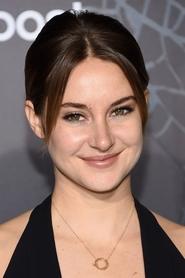 NameShailene WoodleyCharacterHazel Grace Lancaster
NameShailene WoodleyCharacterHazel Grace Lancaster -
 NameAnsel ElgortCharacterAugustus Waters
NameAnsel ElgortCharacterAugustus Waters -
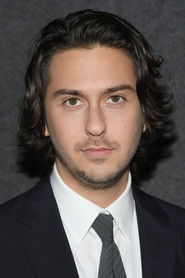 NameNat WolffCharacterIsaac
NameNat WolffCharacterIsaac -
 NameLaura DernCharacterFrannie Lancaster
NameLaura DernCharacterFrannie Lancaster -
 NameSam TrammellCharacterMichael Lancaster
NameSam TrammellCharacterMichael Lancaster -
 NameWillem DafoeCharacterPeter van Houten
NameWillem DafoeCharacterPeter van Houten -
 NameLotte VerbeekCharacterLidewij Vliegenthart
NameLotte VerbeekCharacterLidewij Vliegenthart -
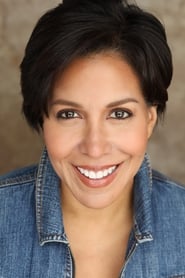 NameAna Dela CruzCharacterDr. Maria
NameAna Dela CruzCharacterDr. Maria -
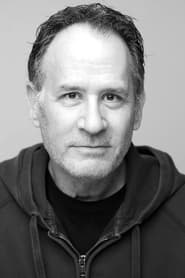 NameRandy KovitzCharacterDr. Simmons
NameRandy KovitzCharacterDr. Simmons -
 NameToni SaladnaCharacterFlight Attendant
NameToni SaladnaCharacterFlight Attendant -
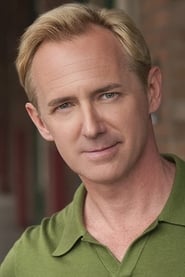 NameDavid WhalenCharacterGus' Dad
NameDavid WhalenCharacterGus' Dad -
 NameMilica GovichCharacterGus' Mom
NameMilica GovichCharacterGus' Mom -
 NameAllegra CarpenterCharacterHostess
NameAllegra CarpenterCharacterHostess -
 NameEmily PeacheyCharacterMonica
NameEmily PeacheyCharacterMonica -
 NameEmily BachCharacterMonica's Mom
NameEmily BachCharacterMonica's Mom -
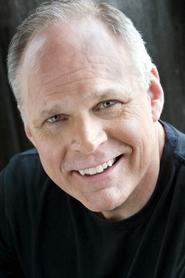 NameTim HartmanCharacterMinister
NameTim HartmanCharacterMinister -
 NameMike BirbigliaCharacterPatrick
NameMike BirbigliaCharacterPatrick -
 NameBethany LeoCharacterSpeaker #1 (Beth)
NameBethany LeoCharacterSpeaker #1 (Beth) -
 NameAlexis HodgesCharacterSpeaker #2 (Angel)
NameAlexis HodgesCharacterSpeaker #2 (Angel) -
 NameJean BrassardCharacterWaiter
NameJean BrassardCharacterWaiter -
 NameCarly OtteCharacterYoung Girl (Alisa)
NameCarly OtteCharacterYoung Girl (Alisa) -
 NameLily KennaCharacterYoung Hazel
NameLily KennaCharacterYoung Hazel -
 NameSilvio Wolf BuschCharacterEuropean
NameSilvio Wolf BuschCharacterEuropean -
 NameViviana CardenasCharacterSupport Group Member (Julie)
NameViviana CardenasCharacterSupport Group Member (Julie) -
 NameJordan DrexelCharacterSpeaker #3 (Sid)
NameJordan DrexelCharacterSpeaker #3 (Sid) -
 NameP.J. RosottoCharacterSpeaker #4 (PJ)
NameP.J. RosottoCharacterSpeaker #4 (PJ) -
 NameTanner BoatwrightCharacterGus's Leg Double
NameTanner BoatwrightCharacterGus's Leg Double -
 NameCheyenne HurleyCharacterCoffee Shop Worker
NameCheyenne HurleyCharacterCoffee Shop Worker -
 NameJennifer KlineCharacterGiggling Girl
NameJennifer KlineCharacterGiggling Girl -
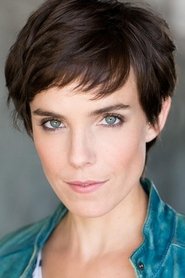 NameCarol WeyersCharacterAnne Frank (voice)
NameCarol WeyersCharacterAnne Frank (voice) -
 NameLauren BlumenthalCharacterSupport Group
NameLauren BlumenthalCharacterSupport Group -
 NameNikki LipinskiCharacterSupport Group
NameNikki LipinskiCharacterSupport Group -
 NameSebastian DeanCharacterSupport Group
NameSebastian DeanCharacterSupport Group -
 NameAlexander MurphCharacterSupport Group
NameAlexander MurphCharacterSupport Group -
 NameTaylor DettoreCharacterSupport Group
NameTaylor DettoreCharacterSupport Group -
 NameJosh PotterCharacterSupport Group
NameJosh PotterCharacterSupport Group -
 NameSteven EdmondsCharacterSupport Group
NameSteven EdmondsCharacterSupport Group -
 NameCindy ZengCharacterSupport Group
NameCindy ZengCharacterSupport Group -
 NameC.J. EvansCharacterSupport Group
NameC.J. EvansCharacterSupport Group -
 NameJohn GreenCharacterLittle Girl's Father (uncredited)
NameJohn GreenCharacterLittle Girl's Father (uncredited)
-
 NameJosh BooneJobDirector
NameJosh BooneJobDirector -
 NameMike MogisJobOriginal Music Composer
NameMike MogisJobOriginal Music Composer -
 NameNate WalcottJobOriginal Music Composer
NameNate WalcottJobOriginal Music Composer -
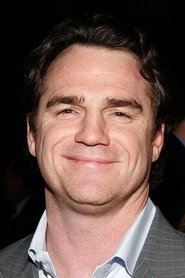 NameMarty BowenJobProducer
NameMarty BowenJobProducer -
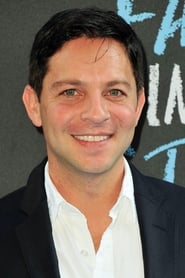 NameScott NeustadterJobScreenplay
NameScott NeustadterJobScreenplay -
 NameMolly HughesJobProduction Design
NameMolly HughesJobProduction Design -
 NameGregory A. WeimerskirchJobArt Direction
NameGregory A. WeimerskirchJobArt Direction -
 NameJohn GreenJobNovel
NameJohn GreenJobNovel -
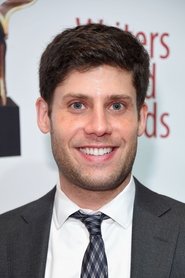 NameMichael H. WeberJobScreenplay
NameMichael H. WeberJobScreenplay -
 NameRobb SullivanJobEditor
NameRobb SullivanJobEditor -
 NameGoro KoyamaJobFoley Artist
NameGoro KoyamaJobFoley Artist -
 NameAndy MalcolmJobFoley Artist
NameAndy MalcolmJobFoley Artist -
 NameSandra FoxJobFoley Artist
NameSandra FoxJobFoley Artist -
 NameBen RichardsonJobDirector of Photography
NameBen RichardsonJobDirector of Photography -
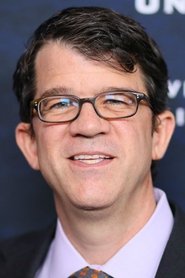 NameWyck GodfreyJobProducer
NameWyck GodfreyJobProducer -
 NameAlette KraanJobCostume Supervisor
NameAlette KraanJobCostume Supervisor -
 NameAndrea AtwaterJobVisual Effects Coordinator
NameAndrea AtwaterJobVisual Effects Coordinator -
 NameAndy NelsonJobSound Re-Recording Mixer
NameAndy NelsonJobSound Re-Recording Mixer -
 NameGreg BorkmanJobFirst Assistant Editor
NameGreg BorkmanJobFirst Assistant Editor -
 NameMerissa LombardoJobSet Decoration
NameMerissa LombardoJobSet Decoration -
 NameBrice LiesveldJobVisual Effects Producer
NameBrice LiesveldJobVisual Effects Producer -
 NameDoug FairallJobMakeup Artist
NameDoug FairallJobMakeup Artist -
 NameJames EidelJobSet Costumer
NameJames EidelJobSet Costumer -
 NameMenno WestendorpJobCamera Operator
NameMenno WestendorpJobCamera Operator -
 NameJim BridgesJobStill Photographer
NameJim BridgesJobStill Photographer -
 NameJim BrookshireJobSound Editor
NameJim BrookshireJobSound Editor -
 NameMarianne SkibaJobMakeup Department Head
NameMarianne SkibaJobMakeup Department Head -
 NameSkip KimballJobDigital Intermediate
NameSkip KimballJobDigital Intermediate -
 NameLaura ZechJobCasting Associate
NameLaura ZechJobCasting Associate -
 NameRaymond M. TasilloJobSpecial Effects Supervisor
NameRaymond M. TasilloJobSpecial Effects Supervisor -
 NamePaul AptedJobSound Editor
NamePaul AptedJobSound Editor -
 NameGeri MatayaJobKey Hair Stylist
NameGeri MatayaJobKey Hair Stylist -
 NameBuster PileJobConstruction Coordinator
NameBuster PileJobConstruction Coordinator -
 NameDonna M. BelajacJobCasting
NameDonna M. BelajacJobCasting -
 NameAriela RotenbergJobVisual Effects Producer
NameAriela RotenbergJobVisual Effects Producer -
 NameJake BraverJobVisual Effects Supervisor
NameJake BraverJobVisual Effects Supervisor -
 NameJames PastoriusJobVisual Effects Supervisor
NameJames PastoriusJobVisual Effects Supervisor -
 NameHoward KarpJobSound Re-Recording Mixer
NameHoward KarpJobSound Re-Recording Mixer -
 NameDavid A. DwyerJobRigging Grip
NameDavid A. DwyerJobRigging Grip -
 NameLeendert van NimwegenJobKey Hair Stylist
NameLeendert van NimwegenJobKey Hair Stylist -
 NameMary Claire HannanJobCostume Design
NameMary Claire HannanJobCostume Design -
 NameHannah d'AngerioJobCasting Associate
NameHannah d'AngerioJobCasting Associate -
 NameErno DasJobGaffer
NameErno DasJobGaffer -
 NameDiane CollinsJobCostume Supervisor
NameDiane CollinsJobCostume Supervisor -
 NameJohn S. MoyerJobSteadicam Operator
NameJohn S. MoyerJobSteadicam Operator -
 NameJohn BairJobVisual Effects Supervisor
NameJohn BairJobVisual Effects Supervisor -
 NameNancy KeslarJobHair Department Head
NameNancy KeslarJobHair Department Head -
 NameLuca KouimelisJobScript Supervisor
NameLuca KouimelisJobScript Supervisor -
 NameChris MuchowJobRigging Gaffer
NameChris MuchowJobRigging Gaffer -
 NameRamon EngleJobSteadicam Operator
NameRamon EngleJobSteadicam Operator -
 NameNancy FullerJobDigital Intermediate
NameNancy FullerJobDigital Intermediate -
 NameSeason KentJobMusic Supervisor
NameSeason KentJobMusic Supervisor -
 NameDante LudoviciJobCamera Operator
NameDante LudoviciJobCamera Operator -
 NameRebecca DunnJobVisual Effects Producer
NameRebecca DunnJobVisual Effects Producer -
 NameRonna KressJobCasting
NameRonna KressJobCasting -
 NameErwan van BuurenJobSteadicam Operator
NameErwan van BuurenJobSteadicam Operator -
 NameGreg BorkmanJobVisual Effects Editor
NameGreg BorkmanJobVisual Effects Editor -
 NameJason TroskyJobSpecial Effects Coordinator
NameJason TroskyJobSpecial Effects Coordinator -
 NameTom Denier Jr.JobMakeup Effects
NameTom Denier Jr.JobMakeup Effects -
 NameJennifer AlbaughJobArt Department Coordinator
NameJennifer AlbaughJobArt Department Coordinator -
 NameSteve CohaganJobGaffer
NameSteve CohaganJobGaffer -
 NameDonald SylvesterJobSupervising Sound Editor
NameDonald SylvesterJobSupervising Sound Editor -
 NameVincent SchicchiJobMakeup Effects
NameVincent SchicchiJobMakeup Effects -
 NameLois YaroshefskyJobStudio Teacher
NameLois YaroshefskyJobStudio Teacher -
 NameDan ShortJobSecond Second Assistant Director
NameDan ShortJobSecond Second Assistant Director -
 NameCora AarnoutseJobCrowd Assistant Director
NameCora AarnoutseJobCrowd Assistant Director -
 NameH.H. CooperJobFirst Assistant Director
NameH.H. CooperJobFirst Assistant Director -
 NameKristen PlouchaJobSecond Assistant Director
NameKristen PlouchaJobSecond Assistant Director -
 NameStefanie HamannJobSecond Assistant Director
NameStefanie HamannJobSecond Assistant Director -
 NameLodewijk van LelyveldJobThird Assistant Director
NameLodewijk van LelyveldJobThird Assistant Director -
 NameRyan WhiteJobExecutive Producer
NameRyan WhiteJobExecutive Producer -
 NameMichele Imperato StabileJobExecutive Producer
NameMichele Imperato StabileJobExecutive Producer
-
Trailer
-
Trailer
-
Trailer
-
Clip
-
Clip
-
Clip
-
Clip
-
Clip
-
Teaser
-
Teaser
-
Featurette
-
Featurette
-
Featurette
-
Featurette
-
Featurette
-
Featurette
-
Featurette
-
Featurette
-
Featurette
-
Featurette
-
Featurette












